Introduction
Homesteading is a lifestyle choice that emphasizes self-sufficiency, sustainability, and a deep connection to the land. Whether you’re dreaming of growing your own food, raising animals, or living off the grid, homesteading offers a rewarding and fulfilling way of life. If you’re a beginner, starting your homesteading journey can feel overwhelming, but with the right guidance, you can take the first steps toward a self-sufficient life. In this guide, we’ll cover everything you need to know to start homesteading for beginners.
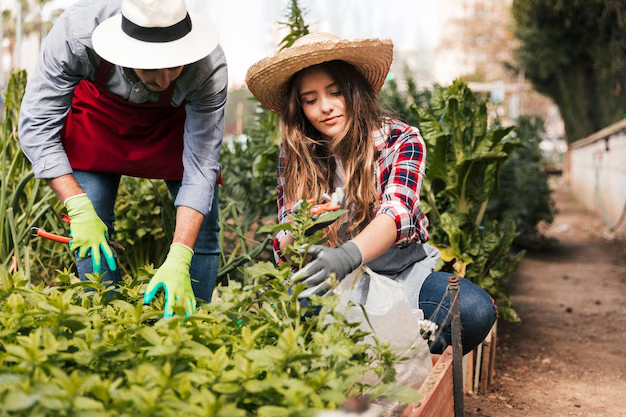
What Is Homesteading?
Homesteading is the practice of living a self-sufficient lifestyle, often on a piece of land where you grow your own food, raise animals, and produce your own resources. It’s about reducing reliance on external systems and embracing a simpler, more sustainable way of life.
Benefits of Homesteading
- Self-Sufficiency: Produce your own food, energy, and resources.
- Sustainability: Reduce your environmental impact by living sustainably.
- Health and Wellness: Enjoy fresh, organic food and a more active lifestyle.
- Financial Savings: Lower your expenses by producing your own necessities.
- Connection to Nature: Build a deeper relationship with the land and the environment.
Steps to Start Homesteading for Beginners
1. Define Your Goals
Before starting, ask yourself:
- What do you want to achieve through Homesteading for Beginners?
- How much self-sufficiency are you aiming for?
- What are your priorities (e.g., growing food, raising animals, generating energy)?
2. Choose the Right Location
The location of your homestead is crucial. Consider:
- Climate: Choose a climate suitable for the crops and animals you want to raise.
- Land Size: Ensure you have enough space for your goals.
- Water Access: Reliable water sources are essential for gardening and livestock.
- Zoning Laws: Check local regulations to ensure your homesteading activities are allowed.
3. Start Small
Homesteading is a journey, not a destination. Begin with manageable projects:
- Gardening: Start with a small vegetable garden or herb patch.
- Composting: Turn kitchen scraps and yard waste into nutrient-rich compost.
- Chickens: Raise a few chickens for eggs and pest control.
4. Learn Essential Skills
Homesteading requires a variety of skills. Focus on learning:
- Gardening: How to grow and preserve your own food.
- Animal Care: Basics of raising chickens, goats, or other livestock.
- Food Preservation: Techniques like canning, drying, and fermenting.
- DIY Repairs: Basic carpentry, plumbing, and electrical skills.
5. Build Your Homestead Infrastructure
Create the necessary structures and systems to support your homestead:
- Garden Beds: Build raised beds or prepare soil for planting.
- Coops and Pens: Construct shelters for your animals.
- Rainwater Harvesting: Install rain barrels or a larger water collection system.
- Renewable Energy: Consider solar panels or wind turbines for energy independence.
6. Plan Your Finances
Homesteading can be cost-effective, but it requires initial investment:
- Budgeting: Plan for land, tools, seeds, and animals.
- Saving: Build an emergency fund for unexpected expenses.
- Income Streams: Explore ways to generate income from your Homesteading for Beginners, such as selling produce or handmade goods.
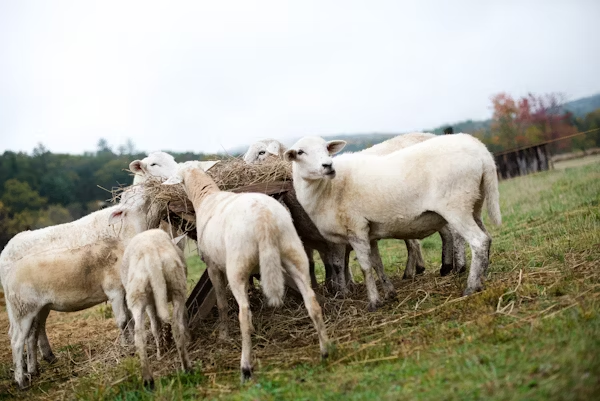
7. Connect with the Homesteading Community
Join local or online homesteading groups to:
- Share knowledge and resources.
- Find mentors and learn from experienced homesteaders.
- Trade or barter for goods and services.
Essential Homesteading Skills for Beginners
1. Gardening
- Soil Preparation: Test and amend your soil for optimal plant growth.
- Companion Planting: Grow plants that benefit each other, like tomatoes and basil.
- Seasonal Planning: Plant crops according to the seasons for maximum yield.
2. Raising Animals
- Chickens: Provide eggs, meat, and pest control.
- Goats: Offer milk and can be raised for meat.
- Bees: Produce honey and pollinate your garden.
3. Food Preservation
- Canning: Preserve fruits, vegetables, and meats in jars.
- Drying: Dehydrate herbs, fruits, and vegetables for long-term storage.
- Fermenting: Make sauerkraut, kimchi, and other fermented foods.
4. DIY Skills
- Carpentry: Build garden beds, coops, and storage sheds.
- Plumbing and Electrical Work: Handle minor repairs and installations.
- Sewing and Mending: Repair clothing and household items.
5. Energy Independence
- Solar Power: Install solar panels to generate electricity.
- Wind Power: Use wind turbines if you live in a windy area.
- Wood Stoves: Heat your home and cook food using a wood-burning stove.
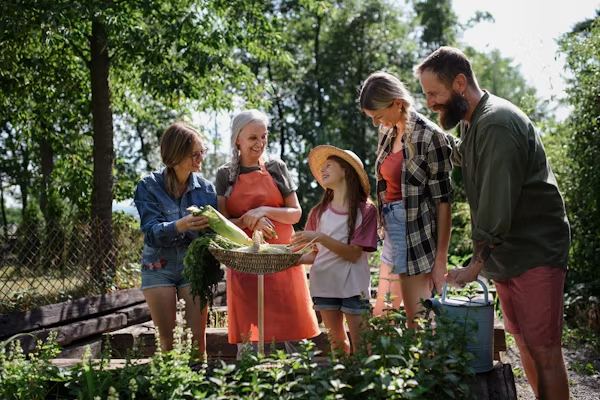
Tips for Successful Homesteading
- Start Small: Focus on one or two projects at a time to avoid feeling overwhelmed.
- Be Patient: Homesteading is a learning process, and mistakes are part of the journey.
- Stay Organized: Keep track of planting schedules, animal care routines, and maintenance tasks.
- Adapt and Innovate: Be open to trying new methods and technologies.
- Celebrate Progress: Take time to appreciate your achievements, no matter how small.
Conclusion
Homesteading is a rewarding lifestyle that offers self-sufficiency, sustainability, and a deeper connection to nature. By following this guide for homesteading for beginners, you can take the first steps toward creating your own self-sufficient life.
- Define your goals and choose the right location for your homestead.
- Start small with gardening, composting, and raising chickens.
- Learn essential skills like food preservation, animal care, and DIY repairs.
- Build infrastructure like garden beds, coops, and rainwater systems.
- Connect with the homesteading community for support and inspiration.
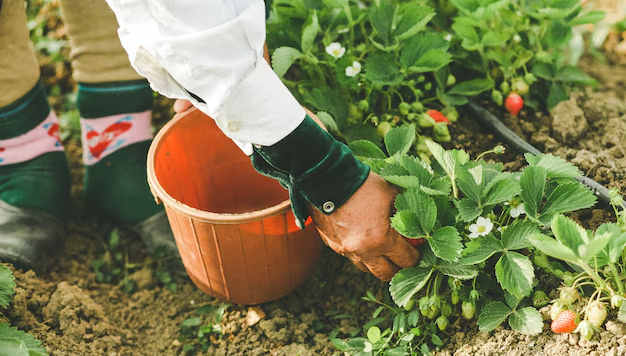
FAQs
1. What’s the easiest way to start homesteading?
Start with a small vegetable garden and a few chickens to build confidence and experience.
2. Do I need a lot of land to start homesteading?
No, you can start homesteading on a small plot of land or even in an urban setting with container gardening and small animals.
3. How much does it cost to start homesteading?
Costs vary depending on your goals, but starting small can be affordable. Focus on budgeting and saving for initial investments.
4. Can I homestead if I have no prior experience?
Yes! Homesteading is a learning process, and there are many resources available to help beginners.
5. What’s the most important skill for homesteading?
Gardening is a foundational skill, as it provides food and teaches you to work with the land.
By embracing homesteading, you can create a more sustainable, fulfilling, and self-sufficient life. Start small, stay committed, and enjoy the journey toward independence!

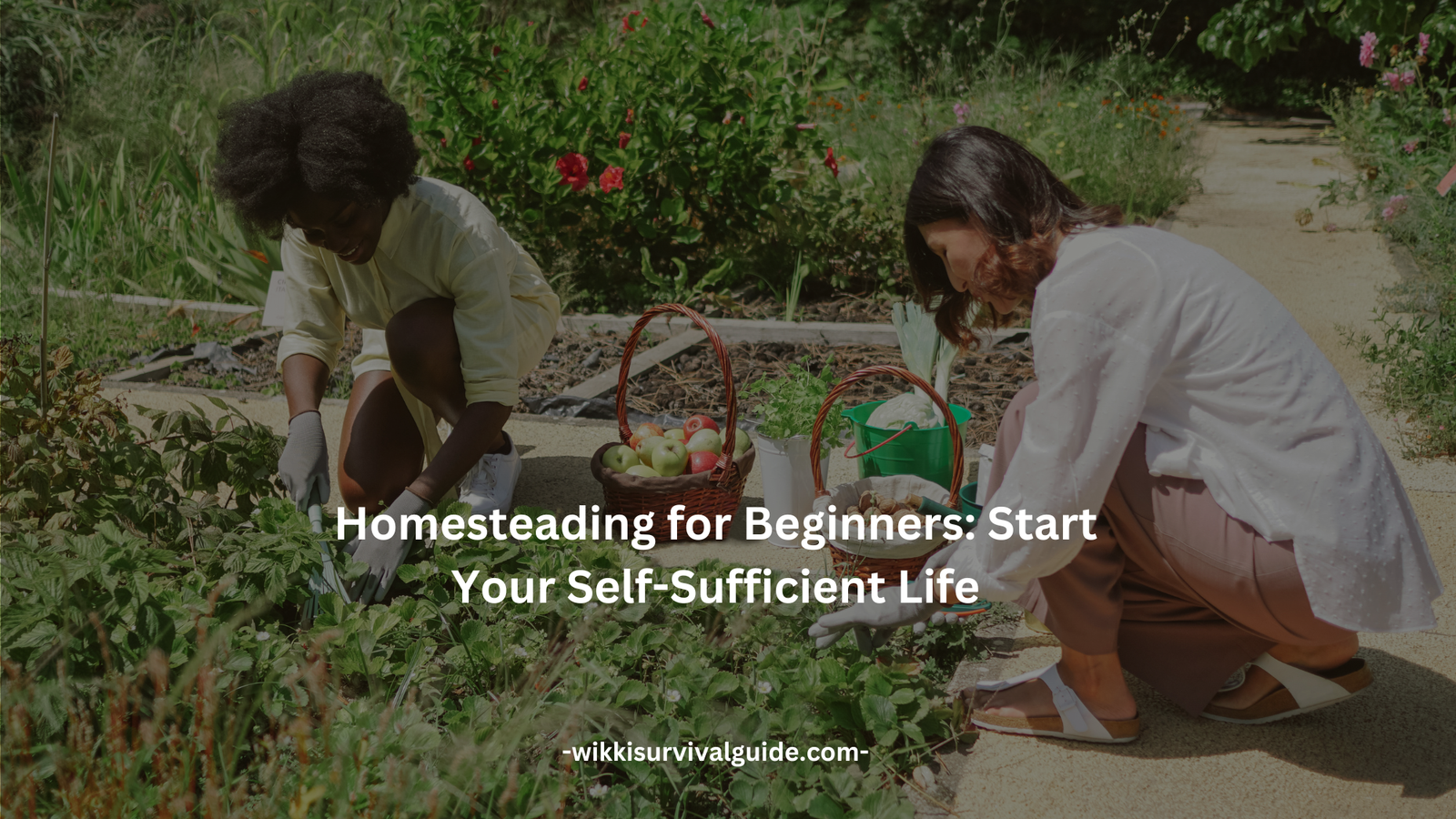
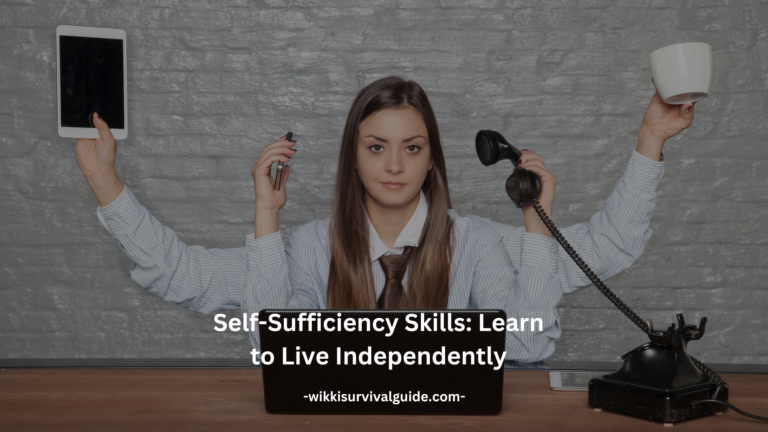
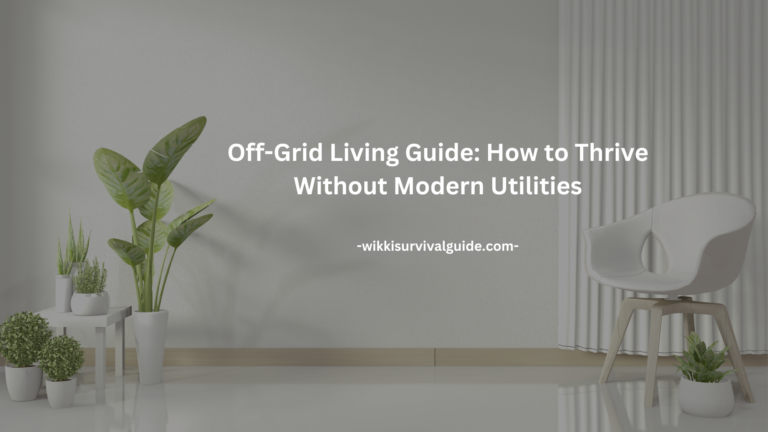
1 Comment